2022 has hosted several highly-anticipated game releases across every platform, whether God of War: Ragnarok, Elden Ring, or Plague Tale: Requiem, and with a handful of new releases have come hundreds of game announcements to look forward to in the months to come. But among the announcements for new releases, one genre, in particular, has shone brightly and reigned supreme: the humble farming sim.
Regardless of the platform, each announcement made to showcase upcoming releases this year has essentially regurgitated the same style of game, if not the same formula of game with a new lick of paint, and slapped a well-known brand on it. I love farming simulators as much as the next person, but if it’s not broken, don’t fix it. There are only so many crops to sow, and soil to til before the content of a farming sim becomes stale, and I fear that we are rapidly headed to a dead end given just how many are being released.
At a time when the term wholesome appears in every product description and when gamers are desperately seeking a new reality to slip into, it makes sense for a genre like a farming simulator to become so rapidly popular. Still, many players have been left to question why this genre has been subtly declared as having the ‘it’ factor when it’s impossible to carve a unique identity and separate your game from the next.
Respect your elders
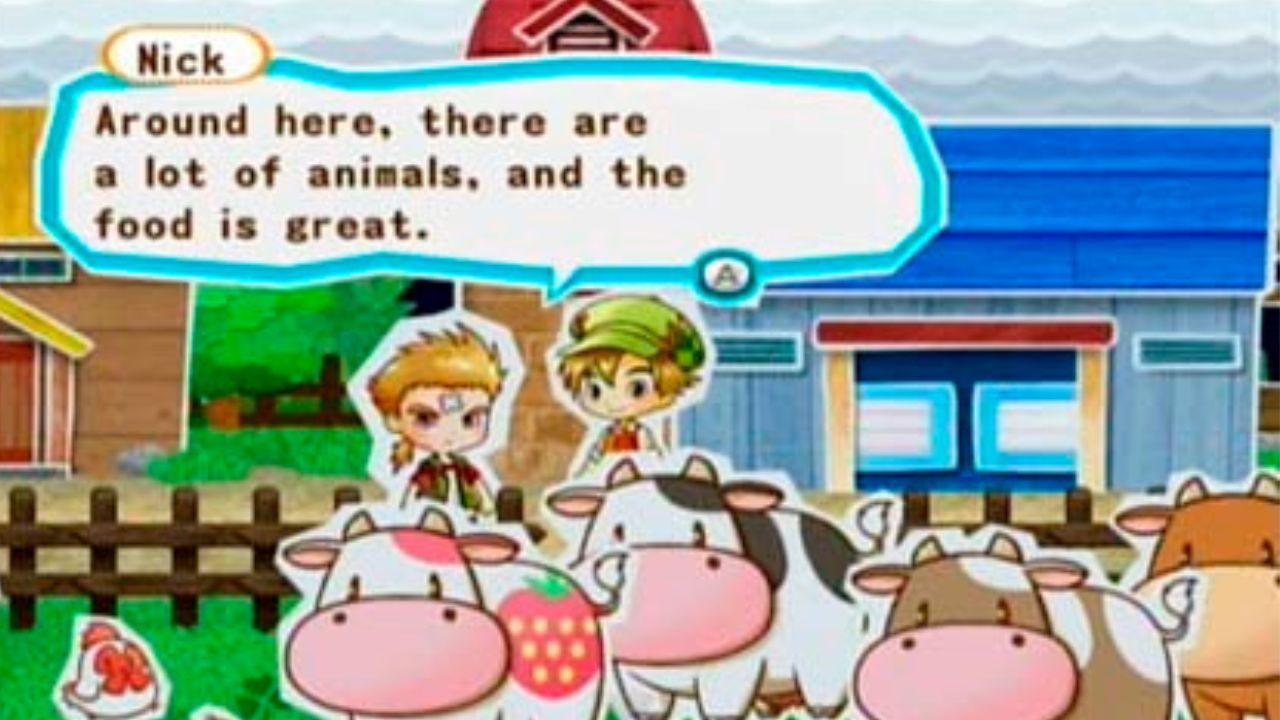
The best way to start dissecting a genre as saturated as farming simulators is by highlighting the overseers and acknowledging what they did to set the groundwork for the genre to build upon. At some point during your gaming career, you may have experienced some farming simulator-inspired mechanic or entire game without realizing it. Sometimes anything as subtle as recovering a stretch of land to build upon or foraging and cultivating your profits will glimmer with similarities to the genre. Still, a few reputable names hit the nail on the head from their initial debut.
Harvest Moon: A Wonderful Life initially launched on the Nintendo Gamecube in 2003 and has since become a well-known and well-loved franchise due to its unique character design, humble small-town village, and familiar mechanics, which make each release easy to pick up and understand if you have any experience with previous titles. With fourteen spin-off titles following the predecessor, there’s a reason the franchise has become so widely recognized and why it’s maintained the title of one of the most highly-praised farming sims.
In addition, it’s impossible to discuss what makes a successful farming simulator without handing the spotlight to Stardew Valley. Arguably taking the torch as the farming sim to end all other farming sims, this one-person developed title is the most popular on the market, and for a good reason. It captivates everything you need about a good farming sim, like simple crop rotation, charming bachelors and bachelorettes, and cutesy animals, while offering some in-depth lore and a community-building satisfaction that will have you pouring hours into restoring Pelican Town without necessarily noticing.
So if a game like Stardew Valley or a franchise like Harvest Moon managed to become so successful and set the basis for all things farming simulators, why have so many franchises decided that now is a better time than any to apply the farming formula to their games? We are so persistent in playing this particular genre, which may feed into the over-saturation of the genre, but understanding why exactly we find them so appealing is the next step.
The Gateway to a Constant Comfort
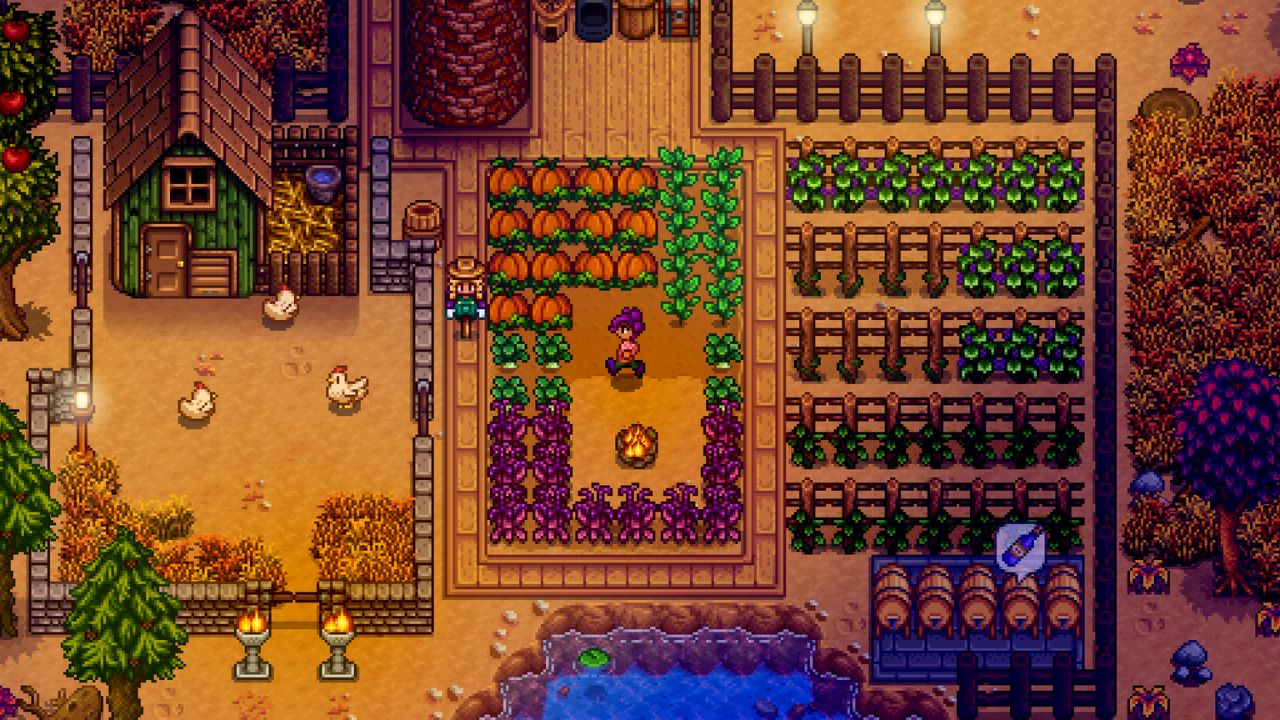
From a personal perspective, farming simulators have always been a shoulder to cry on. Whenever it’s been a long day, or I’ve come face to face with a problem, I’d instead stick my head in the sand about; I’ll consistently turn to a title like Harvest Moon or Stardew Valley to unwind. I know exactly what I need to do, so it’s unlikely I’ll face any challenges I can’t figure out. I won’t have to worry about paying bills, feeding mouths, or anything like grief and loss, so I can happily till the soil until the cows come home. Literally.
Which is what I think a lot of players rely on in this genre. It’s a comfort that proposes very little threat, unlike a roguelike or action-adventure game, which are just as popular but less sought-after following a stressful instance. In a way, having a creature comfort like a farming simulator which you can keep coming back to time and time again, is one of the only constants in a player’s life. Of course, the world will never stop changing around you, but at least you have a slice of escapism to retreat into when the going gets rough.
So one of the things that makes Stardew Valley and fellow farming simulators so popular is just how much time players will happily put aside to work on their land. The thing about farming sims is once you’ve started, you will struggle to stop. However, the repetitive nature of everyday life on the farm means you very quickly become acquainted with the task at hand, so you don’t need to stray from what you’re comfortable with doing to master a new skill or face a new challenge and you can quite happily repeat your steps until you’re satisfied.
An Excuse to Take it Easy
There’s an element to farming simulators that means that although you can take the reigns and build a community from the ground up, you don’t have to rush. Most of the time, the main task you’ll be faced with is to restore a plot of land, a farmhouse, or a derelict town hall which can be completed entirely at your own pace. This stress-free experience is what so many players latch on to, especially given how fast-paced today’s digital world is. Farming simulators emulate something almost tangible in real life but offer little to no adverse side effects, making them appealing to any gamer facing something in real life.
Having a game where you can entirely take things at your own pace without the additional stress of real-life struggles makes this so-called ‘wholesome’ experience so heartwarming, similar to why consumable media like cartoons and animated films appeal to adults and children alike. Although they have some disruption, a positive equilibrium is in-sight, mirrored in the farming sim experience.
If an animal gets sick, a crop wilts, or you fall out with a potential marriage candidate, all you need is a well-timed gift or some magical potion in the local market to improve things. Everything is so easily fixed, which provides this addictive nature to a game. The positive outlook of literally everyone you come across is so far from realistic it makes you want to continue experiencing it for as long as possible.
So Why Do We Play Them?
Following a period where many people turned to video games as a form of escapism, games that provide players with a sense of control are unsurprisingly popular. During the last few years, several lockdowns, and an all-consuming pandemic, farming sims and this idea of ‘cozy’ gaming have become the go-to for many people. During the first lockdown, over 12 Million Nintendo Switches were sold globally, with the majority of them being purchased to play Animal Crossing: New Horizons, and while this isn’t directly a farming simulator, it still fits the mold of the ‘taking control’ style of game.
Video games are designed to be addictive to the player. The immersive nature is designed to captivate you, and the consistent yet steady grind makes passing any amount of time completely achievable. Given how much attention these ‘cozy’ games have been receiving lately, it’s no surprise that almost every studio is jumping on the farm wagon. But, in all honesty, not every studio manages to pull something so successful off.
The Simpocalypse
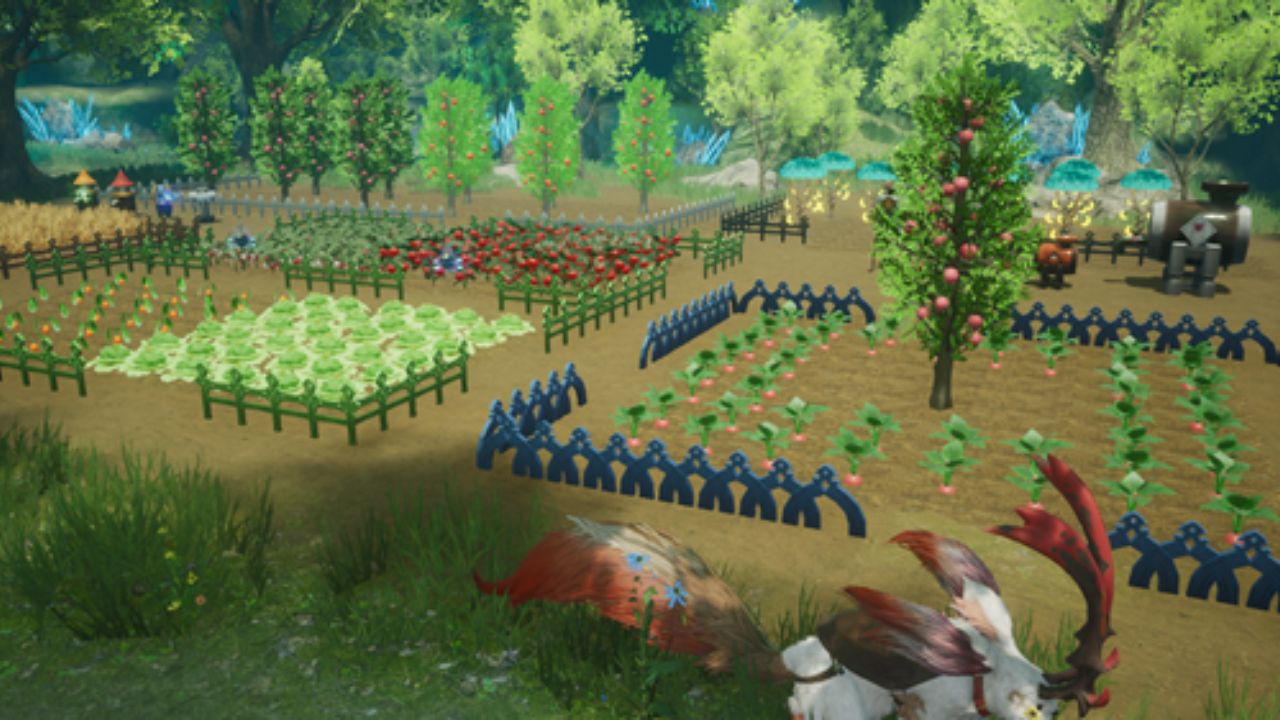
The first moment of clarity I had regarding farming sims being slightly worn out was the Nintendo Direct in September 2022, which showcased seven unique titles with farming sim elements. Of course, one was a re-release of the already famous Harvest Moon: A Wonderful Life, but with four Story of Seasons titles already on the console, it seems pointless to re-release another. Having six alternative games alongside a re-release which follow the same general mechanics and more than likely a similar story, and that’s not even to mention the titles released this year rather than just being announced.
To name a few, Rune Factory 5, Harvestella, Doraemon Story of Seasons: Friends of the Great Kingdom, Kynseed, Dinkum, and Disney Dreamlight Valley, all released this year, and all showcase some heavily farming-orientated mechanics, if not titled themselves a farming simulator.
Just typing ‘farming sim’ into the search bar of the Nintendo Switch eShop returns over 200 results. Of course, you’d have to spend a decent amount of time sifting through these titles to find anything of substance. Still, even then, if you’ve had any experience with a franchise like Story of Seasons, Stardew, or even Rune Factory, you will have essentially experienced every farming simulator on the market. There’s no need to pick another one up.
Regardless of your preferred platform, you can’t deny that the once-humble farming simulator is flooding every online game shop it can. If you’re stressed, then you’ll be recommended a farming sim. If you’re upset? Why don’t you pour some time into working alongside animals? Everyone feels happy around animals! If you’re grieving? Inherit this land from your grandparents and restore it so their spirit can live alongside you! In a way, the sheer amount of farming games being spoon-fed to players makes it feel like they know they are enjoyable (most of the time), and they have to try very little to be praised by even a small group of players.
This leads me to believe why so many developers are working on producing their equivalent to a farming sim nowadays. Regardless of whether or not the game features a unique twist on the genre, as long as it has the core mechanics of what makes a game like Stardew Valley so repetitive yet enjoyable, people will play. It’s the same as Nintendo making a half-baked Pokemon game every few years. People will buy it because it feels familiar and safe, with no alternative rhyme or reason. So, having a variation of such a popular genre feels like a singular constant in such a fast-paced industry. But, you can’t help but question how sustainable this is, given how many people are cottoning on to the trend.
However, the more prominent question is, why now? And frankly, I think it’s an amalgamation of things. Firstly, it’s been a while since Stardew Valley was released, and many players are starting to branch out to other similarly crafted games in search of the newest comforts. So although it’s the game a lot of us return to, and it’s far from showing its age, a lot of us are constantly looking to experience the game for the first time again, which is impossible once you’ve set up a new farm several times. Secondly, there’s still an air of panic running off the back of the last few years, and the need to find a sense of escapism hasn’t shifted just yet.
We’ve settled into the pattern of turning to games as an escape, so we are quick to take the medicine from developers as soon as we see familiar mechanics and gameplay. This is why a continuous stream of farming simulators is being announced, even if they appear stagnant or uninteresting compared to other titles. Once the farming game becomes too much of a chore, or we find ourselves unable to retreat to the safety of some of our favorites, we move on to the next adventure, and the cycle continues until we return to the first farming simulator to start the trend. So, for game studios, having a farming simulator-inspired game opens the doors of their other titles to a new array of players since it offers something popular and safe that players already know.
The Future of Farming
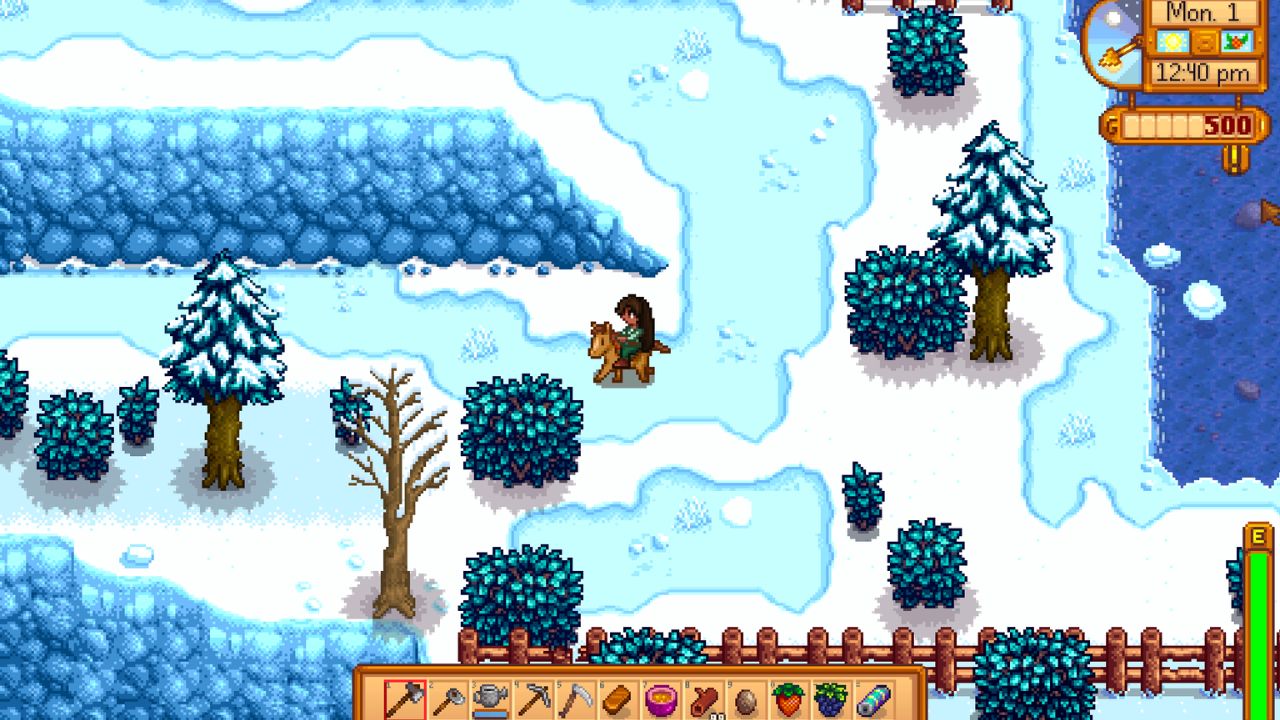
This leaves us questioning whether this damnation of what was once a cozy reality to slip into has wholly ruined this genre we’ve loved. It no longer feels like a standalone experience, and it’s almost impossible to replicate the feeling you experience when you jump into your first farming sim, despite the efforts of every developer attempting. In addition, the oversaturation is intimidating for new players since it’s impossible to know where to start. The popular titles are where they turn since it’s hard to know where is an excellent place to start.
If every platform were to suddenly announce a cull of every farming simulator except the most popular from the eShop, we’d be able to see just how dominating this genre has become without sacrificing the experience. Because truth be told, what Stardew Valley and Story of Seasons bought forward didn’t need competition, so given we still have access to these titles, we still have everything positive about the genre without feeling like the mechanics have been unnecessarily shoe-horned into a title which really couldn’t need them.
Because of this, it’s incredibly difficult to see where the future of the farming simulator resides. As much as I adore the genre, it’s undeniably losing its originality. If the trend continues and each studio continues to churn out a farming-like game, my main concern is the genre will become so confusing that even titles like Harvest Moon and Stardew Valley will inevitably lose their charm in an attempt to keep up with the next trend. If every studio attempted to add a new mechanic or element to their farming sim, like an entirely prehistoric barnyard, or an intergalactic crop rotation, there could be a future for the sim, but it’ll take a lot for the originality to return while also taking away the positive elements of what makes successful farming sims so reputable.
So even though the farming simpocalypse is in full swing, and more players than ever are noticing just how frequent titles of the same style are being released, it’s hard to see this trend dying down for a while. Because, at the end of the day, when curiosity gets the best of us, we will still pick up and play these titles to see how they stray from the original formula. While most of the time they don’t, we can say we tried them when they undoubtedly come up in conversation.


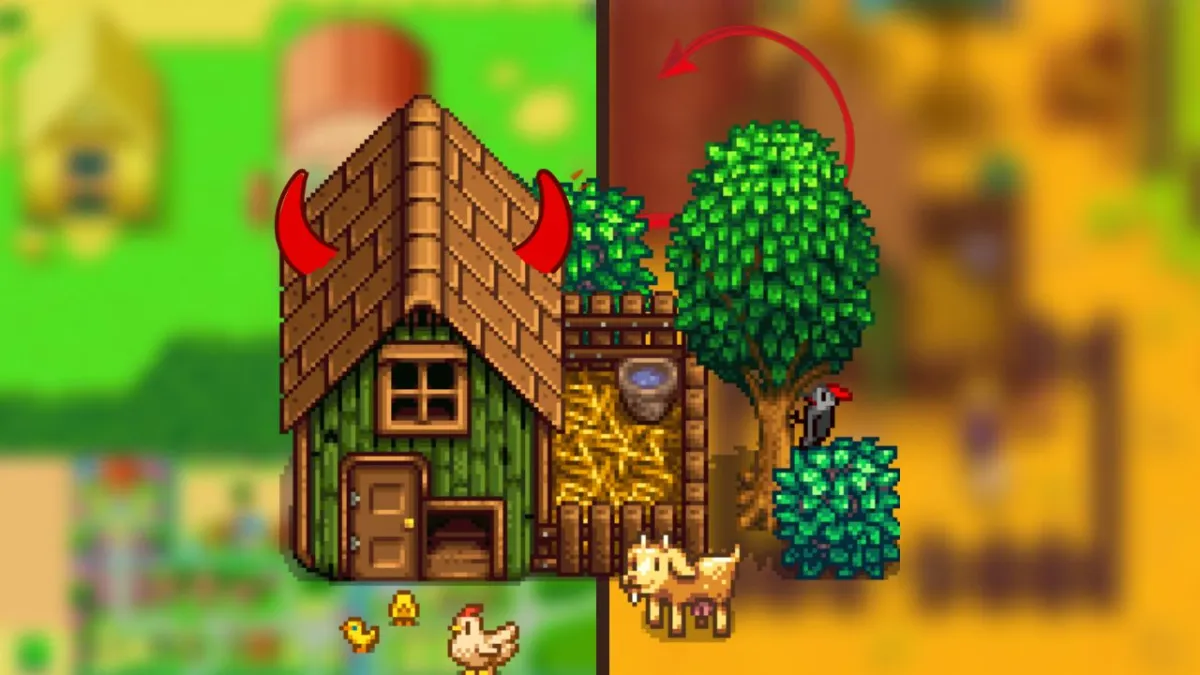







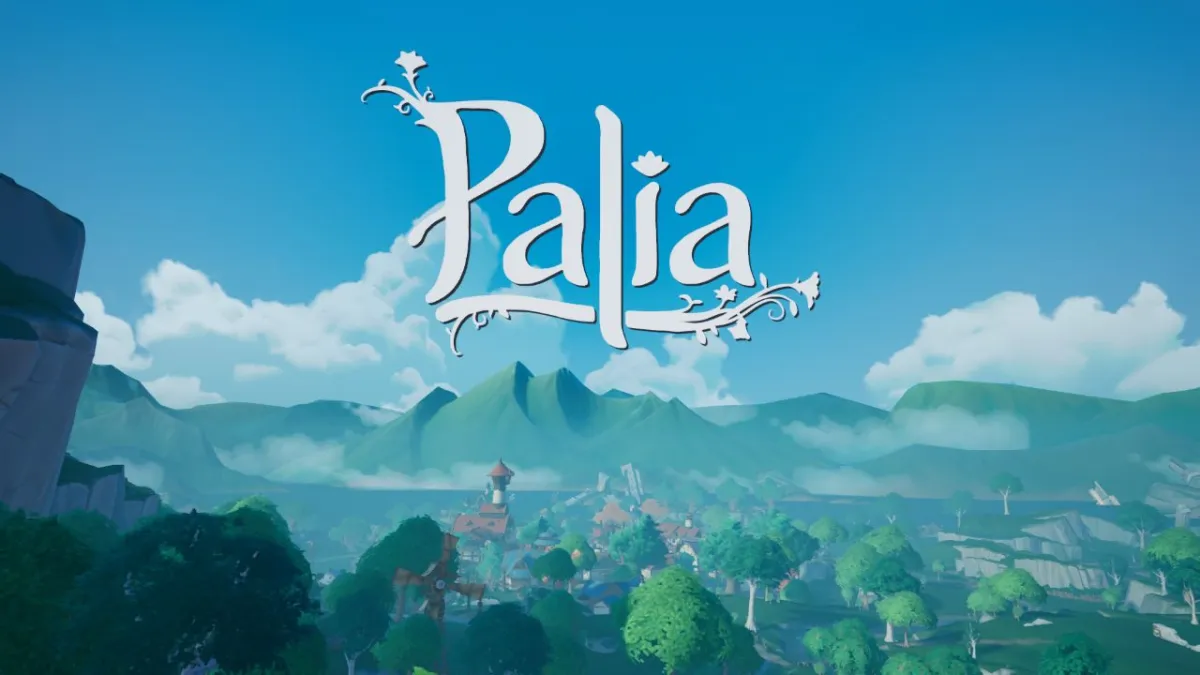

Published: Dec 26, 2022 02:45 pm